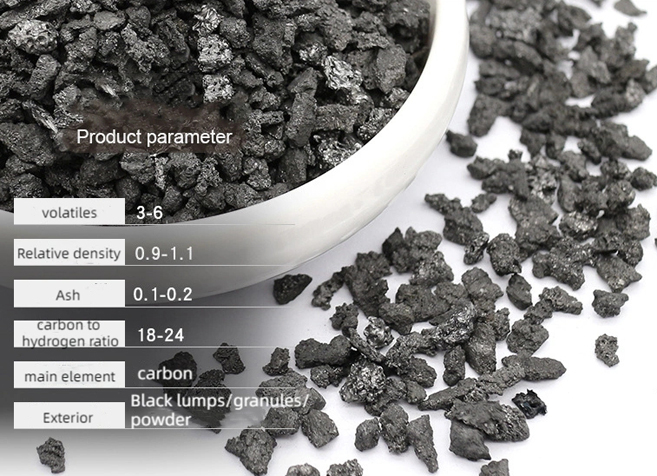
Calcined petroleum coke (CPC) is a crucial material in various industrial applications, and its physical properties play a significant role in determining its suitability for specific uses. One of the essential properties of CPC is its density. This article explores the density of calcined petroleum coke and delves into its importance in different industries.

Calcined petroleum coke is a carbon-rich material obtained by heating green petroleum coke to high temperatures, typically between 1200°C and 1400°C. This process drives off volatile compounds, leaving behind a material with increased carbon content. CPC is widely used in the production of aluminum anodes, as a carbon additive in the steel industry, and in various other applications due to its high carbon and low impurity content.
Density is a fundamental physical property of matter and is defined as the mass of a substance per unit volume. In the context of calcined petroleum coke, density is expressed in terms of grams per cubic centimeter (g/cm³) or kilograms per cubic meter (kg/m³). It is a crucial parameter that provides valuable information about the compactness and porosity of the material.
The density of calcined petroleum coke is of paramount importance for several reasons:
One of the primary applications of calcined petroleum coke is in the manufacturing of anodes for aluminum production. Anodes made from high-density CPC have improved electrical conductivity and mechanical strength. Higher density anodes can withstand the harsh conditions inside the electrolytic cell, leading to increased efficiency and reduced maintenance costs in aluminum smelting.
In the steel industry, calcined petroleum coke is used as a carbon additive to improve the quality of steel production. High-density CPC is desirable because it enhances the carbon content in the steel, leading to better mechanical properties, reduced energy consumption, and lower environmental impact.
CPC with a specific density is used as fuel in cement kilns. The density directly affects the combustion efficiency and energy output of the kiln. Lower-density CPC can lead to increased fuel consumption and operational costs in the cement industry.
Density is closely related to the porosity of CPC. High-density coke is less porous, which is a desirable characteristic in many applications. Reduced porosity means that there is less space for impurities and volatiles, making high-density CPC more stable and reliable in various industrial processes.
The density of CPC also impacts its handling and transportation. High-density coke is more compact and can be transported more efficiently, reducing transportation costs and environmental impact. Moreover, it is easier to handle during loading and unloading operations.
To ensure that calcined petroleum coke meets the specific requirements of different industries, manufacturers adhere to strict quality control standards. These standards often include density specifications, ensuring that the CPC produced is tailored to the intended application. For example, an aluminum smelter may have a particular density requirement for its anode-grade coke.
The density of calcined petroleum coke is a vital physical property that directly influences its performance in various industrial applications. Whether used in the aluminum industry for anode production, the steel industry as a carbon additive, or as fuel in cement kilns, density plays a significant role in determining the quality, efficiency, and cost-effectiveness of these processes. Understanding and controlling the density of CPC is essential for ensuring that it meets the stringent specifications of each industry, thereby contributing to improved product performance and reduced environmental impact.

Write a Message